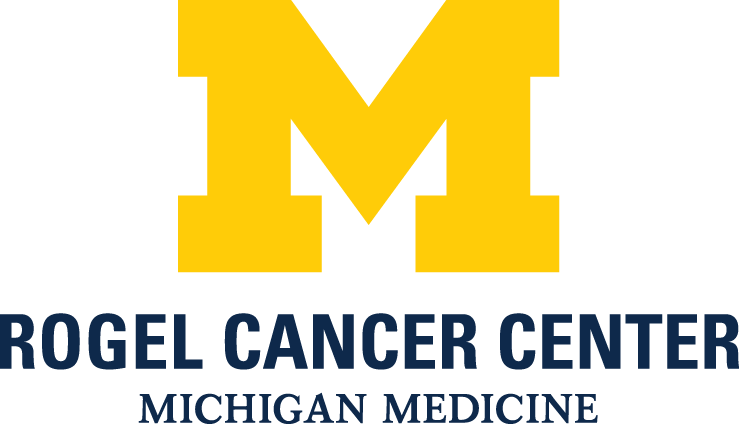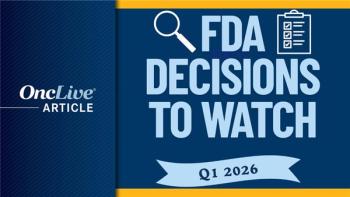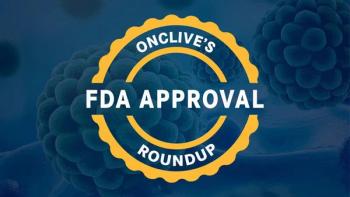
Patient Advocacy and Education Are Essential for Optimal Cancer Care

Caroline Farrington, PhD, shares her insight as both a researcher and a cancer survivor on the importance of patient advocacy, as well as the proper resources to aid patients through a cancer diagnosis.
Encouraging patient advocacy and education are key to overcoming some of the challenges that come with a cancer diagnosis, said Caroline Farrington, PhD, who stressed the importance for providers to help patients not only process their diagnosis, but also answer questions around treatment and adverse effect (AEs) management.
“It's a very overwhelming and scary experience for patients and it's very hard to feel like you have a voice to ask questions,” added Farrington, who is also a colorectal cancer (CRC) survivor. “Even though everything is happening to you, there are a lot of experts coming in and telling you what it is that you need to do to manage your care. [Patients need to be] empowered [in order] to be more engaged, to learn more about their care, why they’re receiving [specific therapies], and what their other choices and resources are.”
In an interview with OncLive® during the 2020 Institutional Perspectives in Cancer webinar on Precision Medicine, Farrington, a postdoctoral fellow at Narla Lab at the University of Michigan, shared her insight as both a researcher and a cancer survivor on the importance of patient advocacy, as well as the proper resources to aid patients through a cancer diagnosis.
OncLive®: How has your CRC diagnosis come to affect your work as a cancer researcher?
Farrington: In the broadest sense, it just made what I do very personal. It really became something that affects me personally and it has changed how I frame a lot of questions about how care is managed at the patient level. When I'm doing research, I'm thinking about whether or not this is something that could translate to patients—something that would be safe for them. Are we actually minimizing AEs [with experimental drugs] versus with what's available? Now, I have a much greater appreciation for how [difficult] these AEs are with all of these medicines that we're developing. [I’m applying] a more clinical aspect to these questions than I did before I was diagnosed.
What patient advocacy challenges still need to be addressed?
[Patient advocacy is] something I know best from my personal experience. I am actually starting to learn more about it and what roles I can [play with my patients]. Communication with family and support systems need to be built when you're going through this. If people don't have a strong support system, how can institutions help provide for that?
What were your expectations for genetic testing in colon cancer versus actuality?
I had an understanding of what it was, but when I became the patient [it was different from] what I wanted it to be. I wanted to learn as much as possible and have the deep dive that we would have on the research side of things. The testing that was done was actually much more practical and [it is something that] can help inform clinical decision making. [We must] also inform patient care beyond [some of the] smaller steps that are commercially available. It will be really interesting to see what we can learn from newer global research projects.
How is genetic testing working to inform CRC treatment currently?
I am not the expert on this, despite having had colon cancer. I don't study it in the lab and I don't keep up with it daily, but right now it's really used to clinically identify if a patient's cancer is associated with a heritable trait, or if it's something associated with a syndrome. [Those results] will affect how you watch disease progression in the patient and what type of care you may give them. [Genetic test results] will also inform care for that patient's family and whether or not their siblings, parents, or children need to get testing or have colonoscopies more frequently. It's really more about what can be inherited; these syndromes are associated with DNA damage that frequently cause [cases of] colon cancer and other malignancies, [as well].
What lessons can health care providers can take away from your experiences as both a patient and a researcher?
I definitely hope that providers understand how hard it is to process a diagnosis before you even start getting to the care aspect. It is wonderful when someone can really sit with you [when you get your diagnosis]; my first oncologist sat with me for an hour. She knew my background and that facilitated a conversation. [But regardless,] sitting down with a patient and really walking them through the aspects of their care [is important].
I like to know how something works: Why am I receiving drug A versus drug B? What's the benefit and [what are the] AEs? Providers are so busy trying to cure you of cancer that the AEs kind of fall by the wayside.
There are tools that providers have to manage AEs, but I still struggle with long-term AEs from my chemotherapy. [That was something that I] felt most frustrated by, with my care. I felt like I was complaining about something minor compared with cancer [itself], but it does affect my life going forward. As we enter a new era of drugs, we don't know all of the associated AEs, like we do with [traditional] chemotherapies. [It’s important to] keep those perspectives in mind and try to learn from how patients respond and how we can better care for them.
Do you have any additional advice to give on the importance of education and patient advocacy?
A lot of cancer centers are starting to build these [advocacy programs], but [it is important to have] information sessions about [patient] care and how to manage [patients] care. Social workers can play a really nice role when you need help, but having more resources available to patients and more people to speak with, such as a psychologist with an oncology background, can help. I found that super helpful, but I know that's not available in a lot of places.
As you advocate for patients and you go through patient education, understand that patients are very capable of understanding their care and their disease, and that they should really be included in the conversation. [You don’t just want to have] somebody talk to you, but you need someone to walk you through things. [You don’t want someone to] assume that because you don't have questions in the moment, that means you're good to go. Someone should not try not to dumb things down; it's the “information age” and we can Google everything. It’s trying to have a real conversation with your parents and educate them; don’t just tell them what's coming tomorrow.
I feel very fortunate that I was in the location and the situation that I was in for my diagnosis. It made it much easier for me to manage [my cancer]; maybe it would have been easier if I knew less, but I hope I take that lesson and carry it with me for when others are struggling.


































